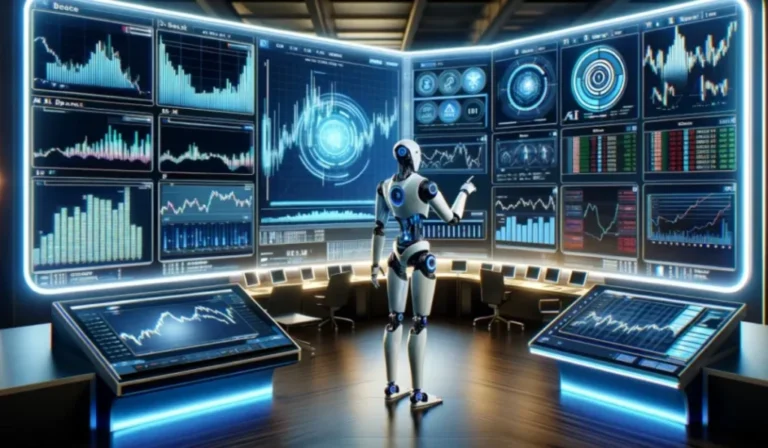17 Inventions That Haven’t Been Invented Yet (But People Want)
Innovation drives the world forward, and as technology continues to advance, we find ourselves dreaming about inventions that could make life easier, more enjoyable, and even safer. From solving everyday annoyances to tackling global challenges, the following is a list of 17 inventions that, while not yet realized, are highly desired by people around the globe.
1. Anti-Fogging Eyeglasses
In a world where eyeglasses are a necessity for millions, one of the most frustrating experiences is dealing with fogged-up lenses. This minor inconvenience became a significant issue during the COVID-19 pandemic, when wearing masks led to constant fogging. The demand for anti-fogging eyeglasses is not new, but the pandemic made it a priority. Imagine never having to wipe your glasses or squint through a foggy haze. While anti-fog coatings exist, they are not foolproof. An innovative solution that completely eliminates fogging could transform the daily lives of many.
2. Dream Recorder
Have you ever woken up from a vivid dream only to forget its details moments later? A dream recorder could change that. This invention would allow us to record and revisit our dreams, potentially unlocking creativity, solving problems, or even helping with personal growth. While the concept may seem far-fetched, it taps into a deep human curiosity about the subconscious mind. The ability to play back dreams could provide insight into our innermost thoughts and ideas, and perhaps even influence waking life decisions.
3. Cloudbuster for Rain
As climate change continues to affect global weather patterns, droughts are becoming more frequent and severe. A cloudbuster, a device that can create rain on demand, could be a game-changer for agriculture and regions suffering from water shortages. While cloud seeding has shown limited success, a more reliable and scalable solution is still out of reach. If scientists could perfect a method for inducing rainstorms, it could provide much-needed relief to drought-stricken areas, helping to secure food supplies and sustain ecosystems.
4. Real-Time Universal Language Translators
Language barriers have long been a challenge in global communication, but imagine a world where everyone could speak and understand each other in real-time, regardless of language. A universal language translator could break down these barriers, fostering better international cooperation and understanding. While translation apps and devices exist, they are not perfect and often lack the immediacy and nuance of real-time conversation. A truly universal, real-time translator could revolutionize travel, business, and diplomacy.
5. A Smartwatch That Can Detect Diseases
The healthcare industry is rapidly evolving, and wearable technology has already made strides in monitoring health. However, a smartwatch that can detect diseases before symptoms even appear would be a monumental leap forward. This invention could monitor vital signs, analyze biomarkers, and detect early signs of diseases like cancer, diabetes, or heart conditions. By catching these conditions early, such a device could save lives and reduce healthcare costs by enabling timely intervention.
6. Eyeglasses That Provide Broader Peripheral Vision
Standard eyeglasses often limit peripheral vision, which can be a safety concern for drivers, cyclists, and pedestrians. Eyeglasses that enhance peripheral vision could help prevent accidents and provide a more comprehensive field of view. Imagine glasses that not only correct your vision but also allow you to see more of your surroundings, reducing blind spots and making everyday activities safer.
7. A Printer That Doesn’t Need Ink
Printers are notorious for their high ink costs and frequent maintenance needs. An eco-friendly printer that uses a sustainable alternative, such as coffee grounds or other waste materials, could revolutionize the printing industry. Not only would this reduce environmental impact, but it would also save businesses and consumers money. With the world increasingly focused on sustainability, a printer that runs on waste products would be a welcome innovation.
8. Animal-Human Language and Behavior Translator
The bond between humans and animals is profound, yet communication remains a challenge. An animal-human translator could bridge this gap, allowing us to understand animal language and behavior better. Whether it’s communicating with pets, understanding wildlife, or even trying to decode the sounds of extinct species, this invention could deepen our connection with the natural world. It could also have significant implications for conservation efforts, helping to protect endangered species by understanding their needs better.
9. Affordable Space Travel
Space tourism is an exciting prospect, but it remains out of reach for the average person due to high costs. Affordable space travel would open the final frontier to more people, allowing us to experience space firsthand. This could lead to new opportunities for exploration, scientific research, and even leisure. As technology advances and costs decrease, the dream of space travel could become a reality for many, making it possible for ordinary people to look back at Earth from the stars.
10. A Panacea to Cure All Diseases
The concept of a panacea—a cure for all diseases—has been a part of human imagination for centuries. While medical science has made incredible strides, no single treatment can cure every ailment. A universal cure would eliminate the fear of new diseases and provide hope to those battling life-threatening conditions like cancer and HIV. Such an invention would revolutionize healthcare, extending life expectancy and improving the quality of life for billions of people.
11. Flying Cars
Traffic congestion is a daily frustration for millions, leading many to dream of a future where flying cars whisk us over gridlocked roads. While flying cars have long been a staple of science fiction, they are inching closer to reality. The potential benefits are immense: reduced travel times, fewer accidents, and a significant reduction in urban congestion. Although there are still many technological and regulatory hurdles to overcome, the dream of flying cars continues to captivate imaginations worldwide.
12. Washing Machine That Irons and Folds Clothes
Laundry is a time-consuming chore that few people enjoy. A washing machine that not only washes but also dries, irons, and folds clothes could transform household routines. Imagine simply loading your clothes into a machine and retrieving them perfectly folded and wrinkle-free, saving hours of time and effort. With advances in robotics and automation, this invention could be on the horizon, making laundry a hassle-free experience.
13. Travel at the Speed of Light
The vast distances of space make exploration challenging with current technology. Travel at the speed of light, a concept rooted in Einstein’s theory of relativity, would make space exploration feasible on a much larger scale. Instead of taking years to reach distant planets, we could explore the solar system and beyond in mere hours or days. This would open up new possibilities for colonization, resource extraction, and the search for extraterrestrial life, potentially changing the future of humanity.
14. Hoverboards
Hoverboards have been a fixture of science fiction, promising a futuristic way to glide through the air effortlessly. While various hoverboard-like devices exist, they are far from the sleek, efficient machines depicted in movies. A true hoverboard would revolutionize personal transportation, reducing the need for cars and freeing up urban space currently devoted to roads and parking. It would also offer a fun and futuristic way to commute, shop, or simply enjoy a day out.
15. Self-Charging Batteries
Battery life is a constant concern for users of smartphones, laptops, and other portable devices. A self-charging battery that harnesses renewable energy sources like solar or kinetic energy could solve this problem. Imagine never having to plug in your phone or laptop again—your devices would charge themselves as you use them. This would not only be convenient but also significantly reduce electronic waste and energy consumption.
16. Antibiotics Substitutes
Antibiotics have been a cornerstone of modern medicine, but their overuse has led to the rise of antibiotic-resistant bacteria, a serious global health threat. A substitute for antibiotics that is just as effective but without the harmful side effects is desperately needed. Research into alternatives, such as phage therapy, is ongoing, but a reliable and widely available substitute has yet to be developed. This invention could save millions of lives and prevent the further spread of antibiotic resistance.
17. Heartbreak Healing Machine
Heartbreak is a universal experience, and while time is often said to be the best healer, many wish for a faster solution. A heartbreak healing machine or a tonic that can lessen the emotional pain of a breakup could be a game-changer for those suffering from emotional distress. While the idea might seem whimsical, the emotional and psychological benefits could be profound, helping people recover from heartbreak more quickly and move on with their lives.
Conclusion
These 17 inventions, though not yet realized, reflect humanity’s constant desire to improve and innovate. From personal conveniences like anti-fogging eyeglasses and dream recorders to world-changing technologies like real-time language translators and flying cars, these ideas capture the imagination and highlight the potential of future innovation. While some may seem closer to reality than others, all of them represent a future where life could be easier, healthier, and more connected. As technology continues to advance, who knows which of these inventions might one day become a reality?
Keep up-to-date with breaking news and updates on glamourtomorrow






